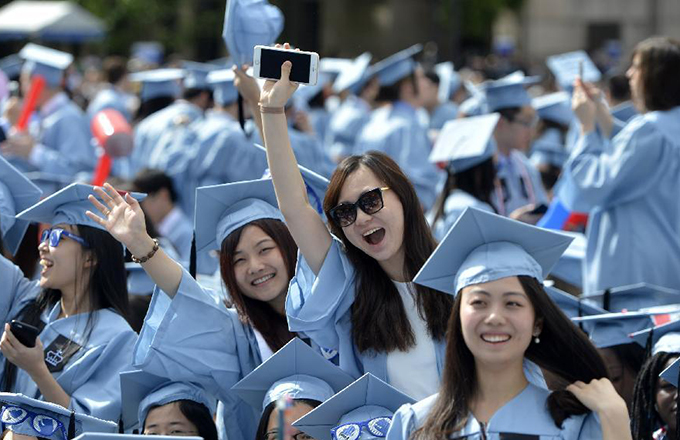Party's governance advances with the times
The Communist Party of China has always sought to reinvent itself. Its leaders have contributed to the evolution of the Party, making it more adaptive to the changing times. Every time the Party leadership perceives a chasm between the leadership and the people, it makes successful interventions, strengthening its credentials as the benevolent Party working to improve the lives of the people.
The reform and opening-up launched by the Party under the pragmatic leadership of Deng Xiaoping almost four decades ago have to be seen in this context.
However, when the Party leadership realized that decades of fast-paced economic growth has led to income disparity and regional imbalance, it decided to shift the focus to social governance by "putting people first". Under Xi Jinping's leadership, the Party has once again reinvented itself by vowing to realize the Chinese Dream, or the rejuvenation of the Chinese nation.
The 21st century has also seen other developments such as the spillover effects of a governance model based on GDP-centric growth, China joining the World Trade Organization and becoming an integral part of globalization, which have also posed challenges. These challenges have prompted the Party to embark on a new series of reforms and resolve to strengthen its "governance capacity".
To begin with, the CPC has been seeking authority from not only "ideological legitimacy", but also "empirical legitimacy". To this effect, the Party has promoted a series of reforms that include administrative accountability, divesting the State from private business, "putting people first" and "building a harmonious society". More importantly, it has also launched a massive anti-corruption campaign.
Second, the Party has provided certain "safety valves" for the people, allowing them to constantly negotiate with the State and, in the process, accommodated new challenges and groups. For instance, scaling back public welfare and other concerns stemming from "limited government", the Party has embarked, according to many observers, on building a "big Party, small State, great society".
In order to establish direct connect with society, the Party has adopted the innovative idea of forming party organized NGOs, or PONGOs, which are a hybrid form of organization set up to encourage the growth of professional charitable organizations taking on public welfare provisions. Under the auspices of corporate social responsibility programs, the Party has also encouraged its members to participate in public services.
Third, in the realm of e-governance, the Party has encouraged citizens to voice their concerns. As a result, the people are more willing to stake their claims, in order to obtain better services. This has facilitated new platforms on which the State and the people constantly negotiate with each other, which in turn has helped the Party to develop new governance mechanisms on Deng's principle of "crossing the river by feeling the stones".
In this regard, it should be mentioned that both Chinese and foreign scholars have pointed out the growing dissatisfaction of the people with the abuse of power and "misgovernance" by officials at the local level. This has prompted the Party to take measures to improve the quality of local officials and instill in them the moral code of "a good communist". The Party has also devised mechanisms such as the "cadre exchange system" to combat localism and curb rent-seeking activities.
Fourth, the CPC is aggressively promoting the "rule of law", which places the ruling party structure alongside that of the State, which has sent a loud and clear message that violation of the "rule of law" by even Party and government officials will lead to severe punishment.
Borrowing a management concept, the 17th National Congress of the CPC declared the Party would mold itself into a "learning party", and the Party leadership exhorted its members to learn from successful experiments through pilot programs adopted internally.
And through the "mass line approach" Party chief Xi Jinping has urged the members to introspect and serve the Chinese people and the nation.
As China moves ahead seeking to claim what it considers its rightful place in the world, a lot will depend on how the Party leadership handles the various contradictions emerging from its growing integration with the international system. China's leadership at the global level will be determined to a significant extent on the way the Party devises governance mechanisms to boost its "governing capacity".
The author is an associate professor of Humanities and Social Sciences at the Indian Institute of Management, Indore, India.






















